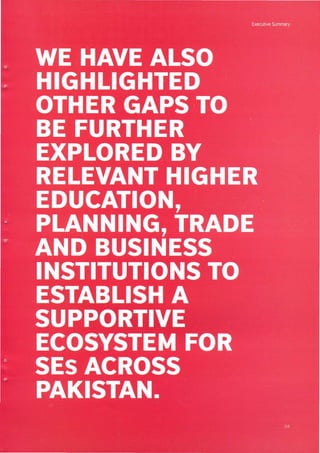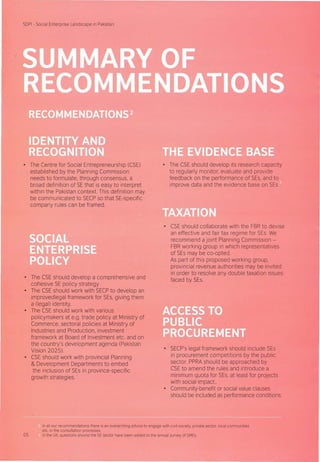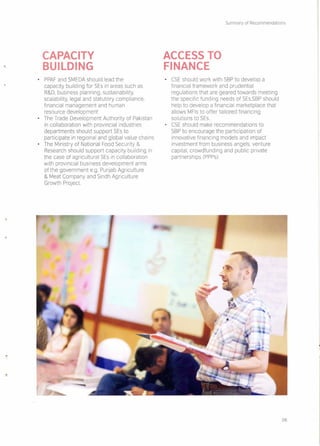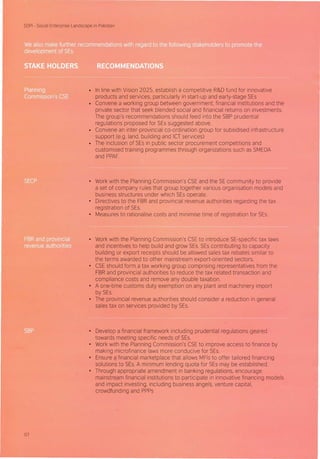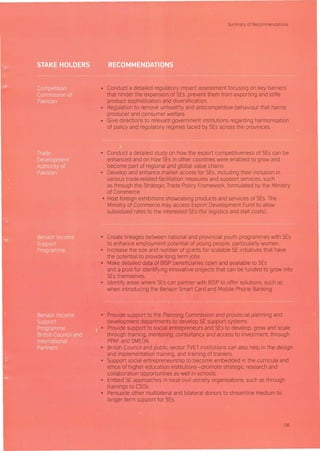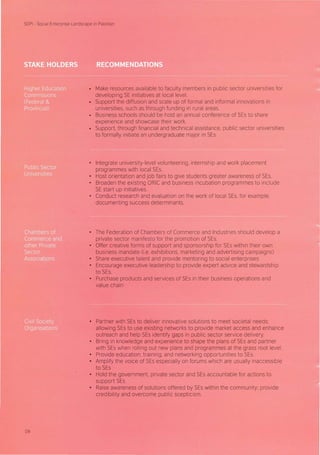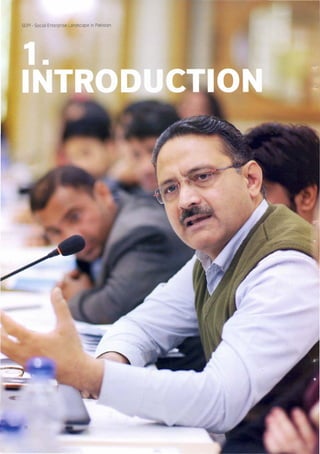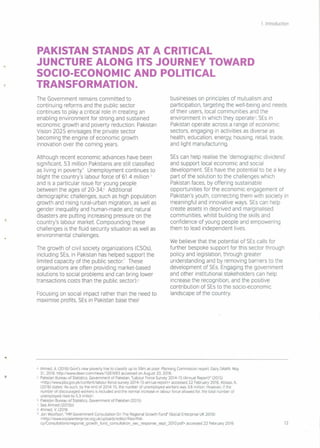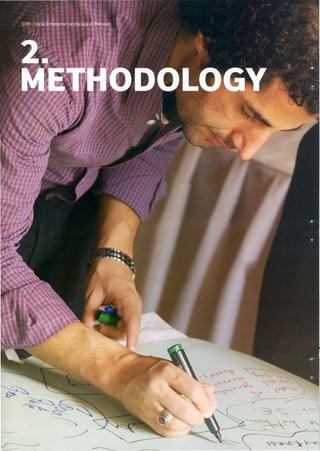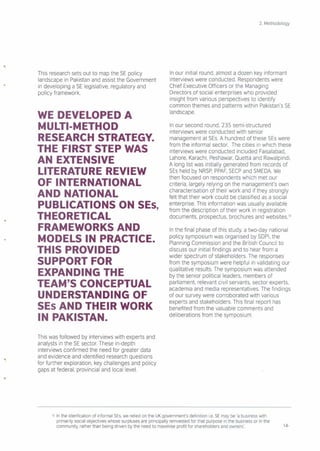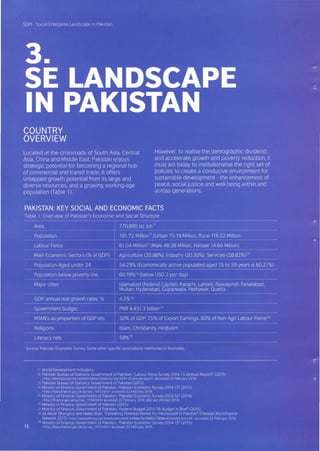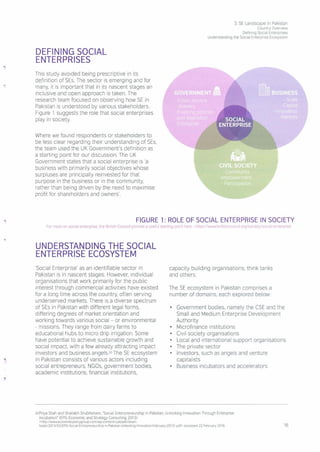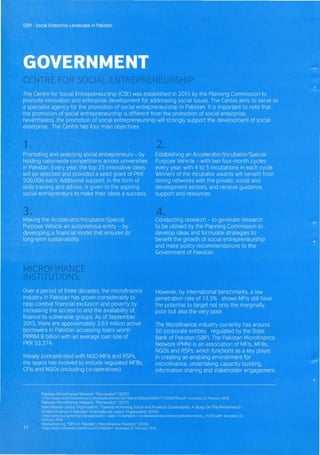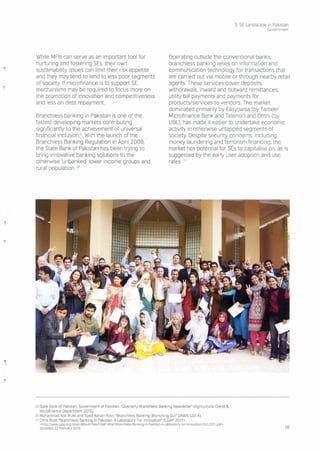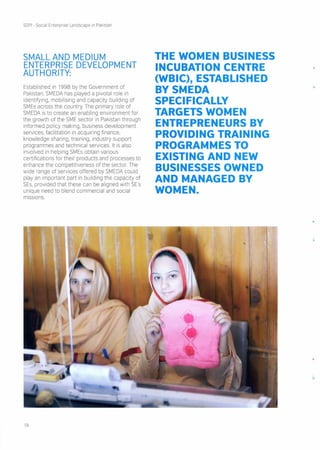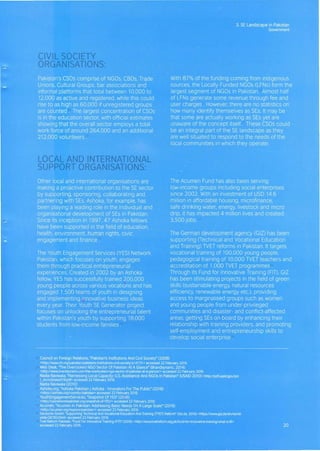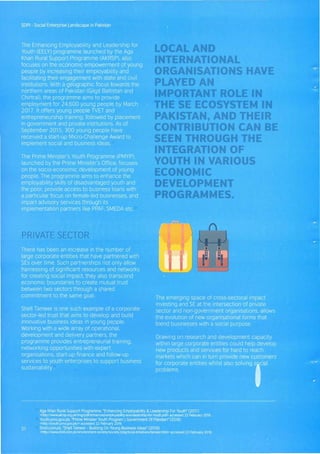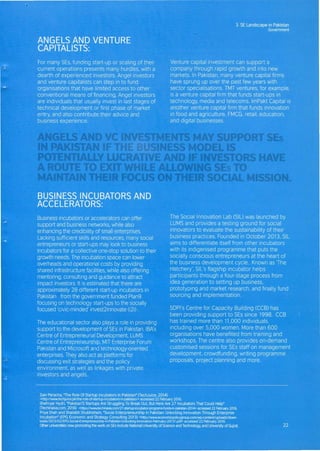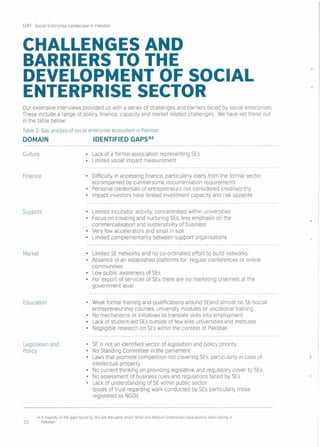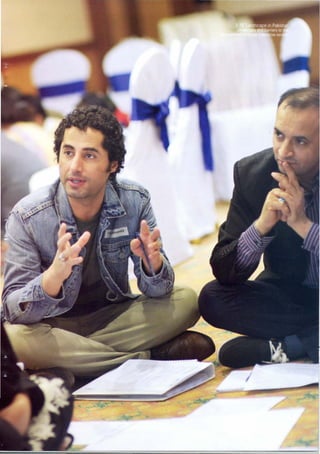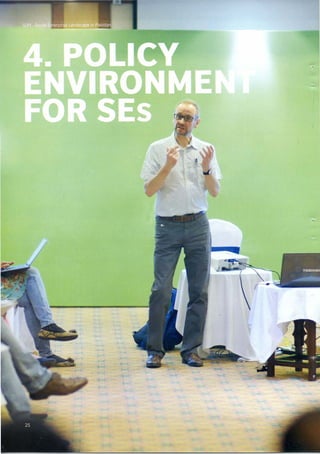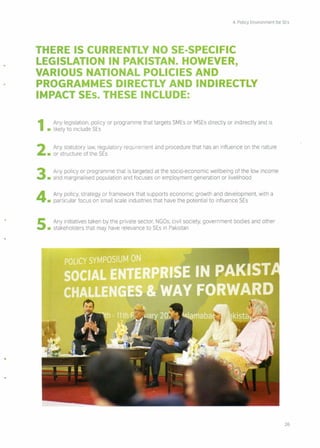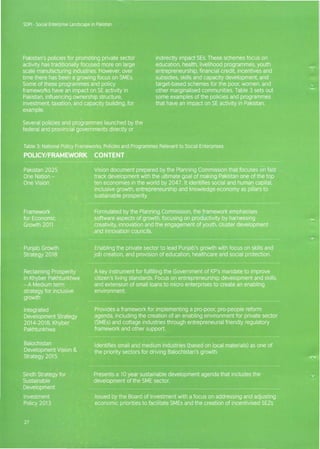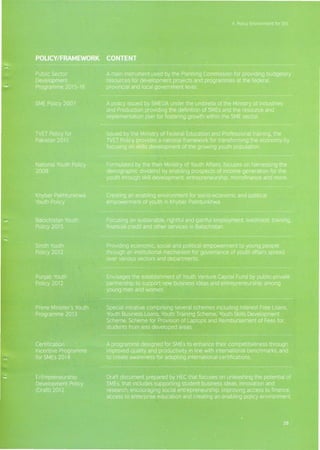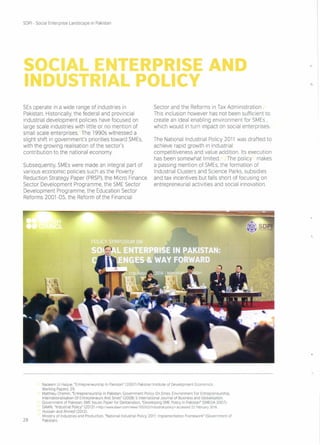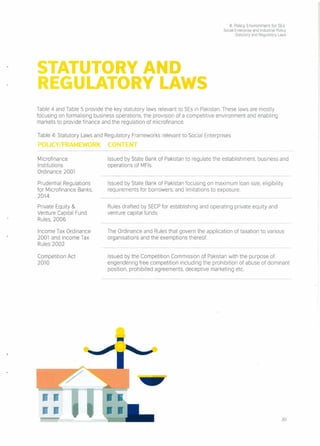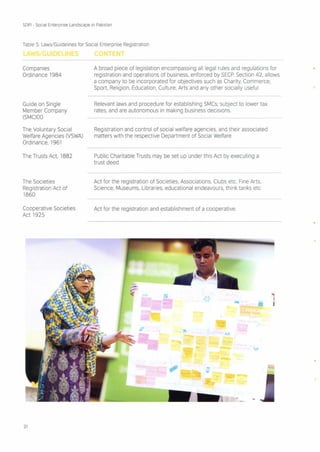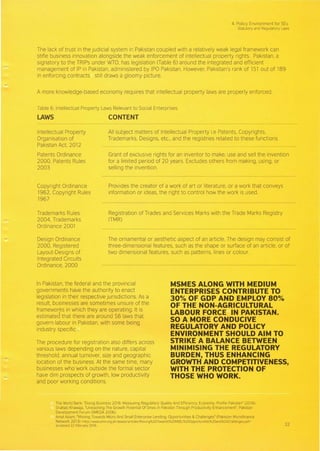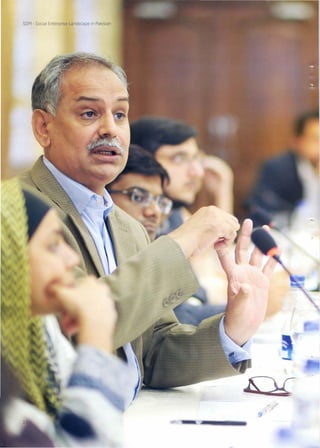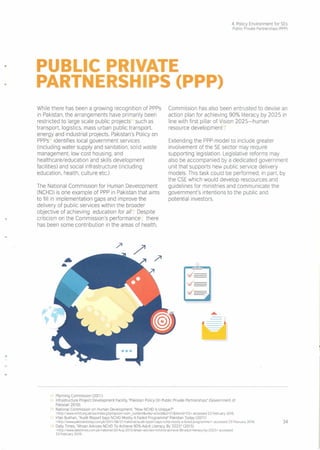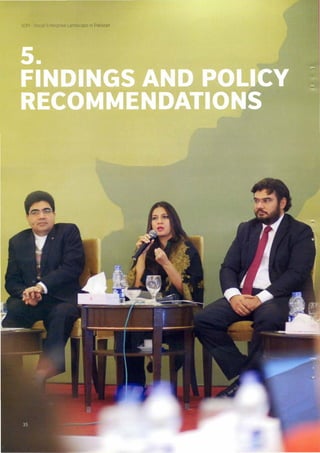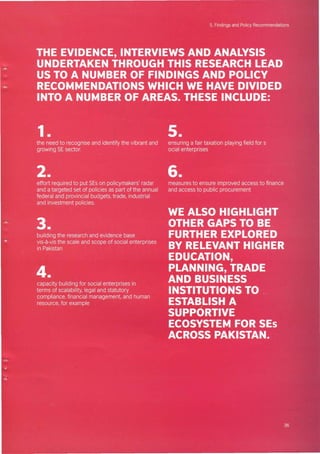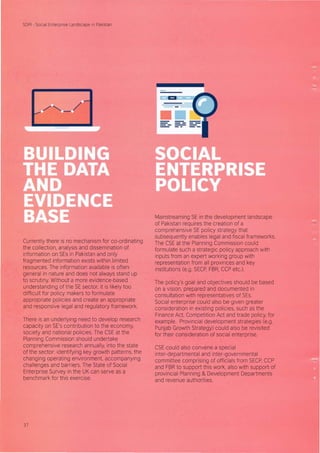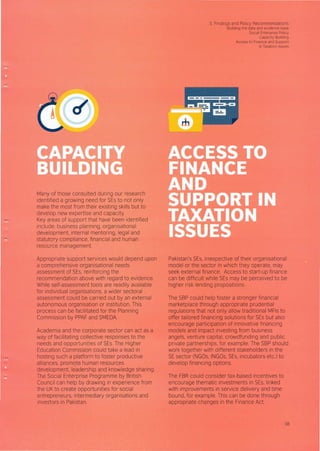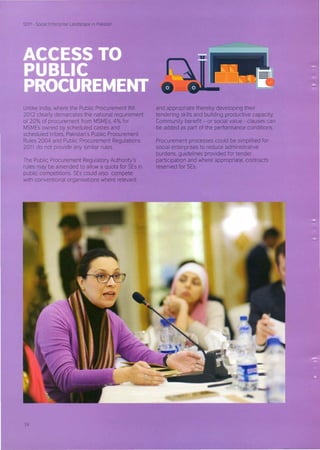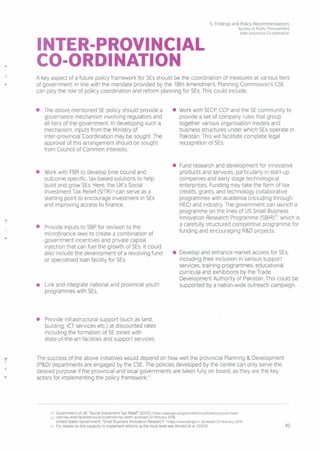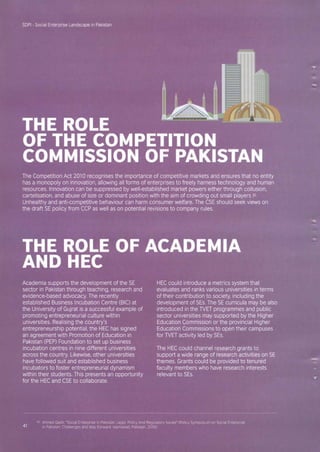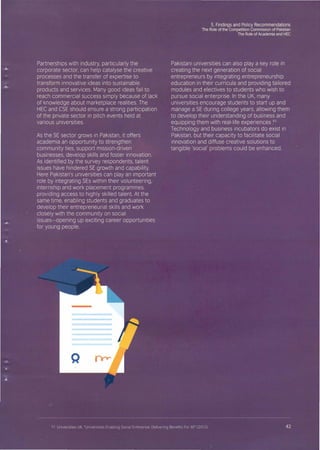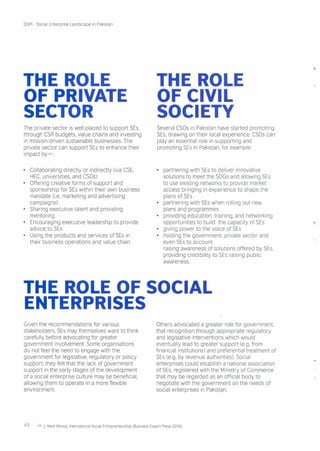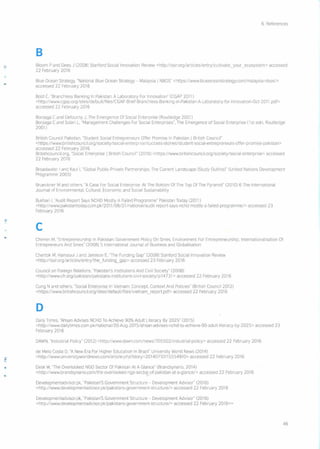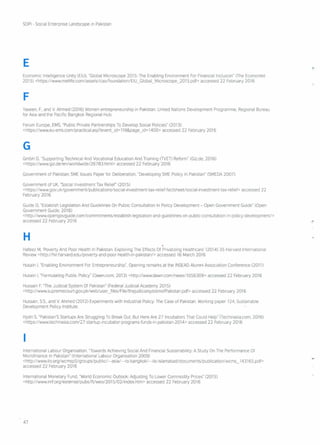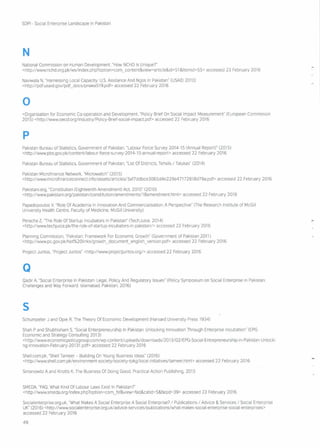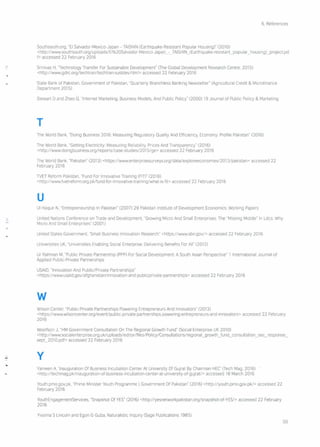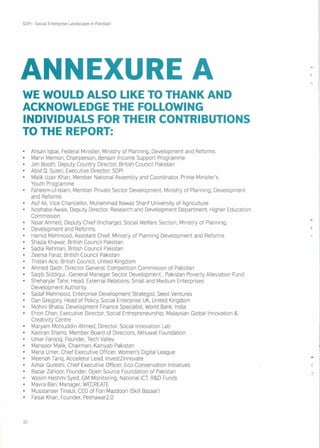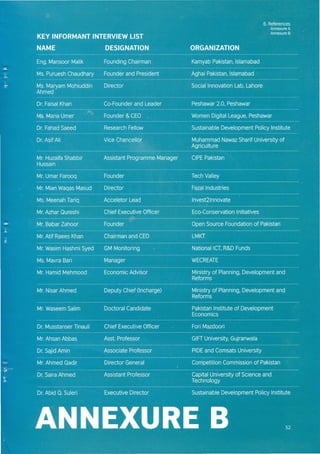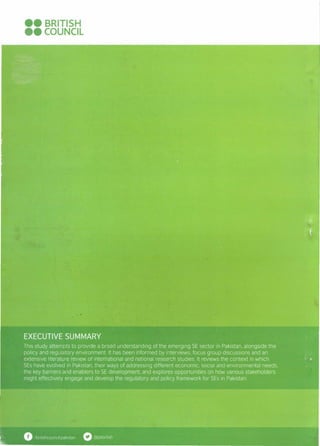Social enterprises (SEs) in Pakistan are emerging as a potential solution to societal needs, filling gaps in public service and offering innovative models for economic empowerment. This report discusses the current SE landscape, highlighting the absence of specific policies and legal frameworks, while providing recommendations for improved policy support, capacity building, and access to finance. It emphasizes the critical role of SEs in achieving sustainable development goals and their potential impact on Pakistan's socio-economic transformation.
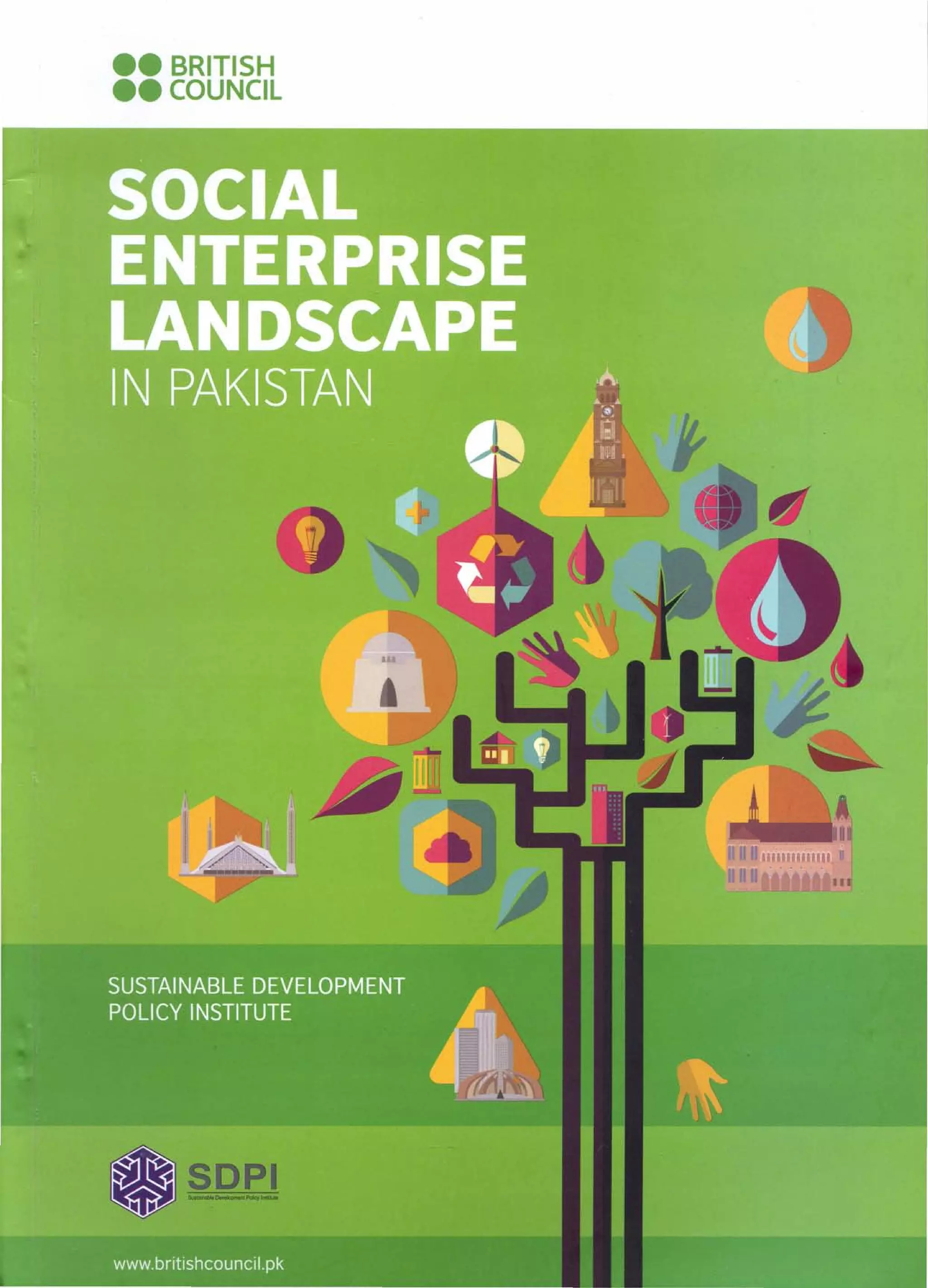
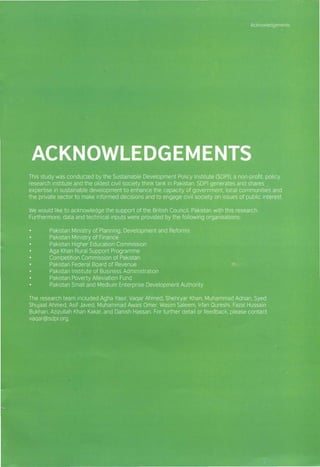
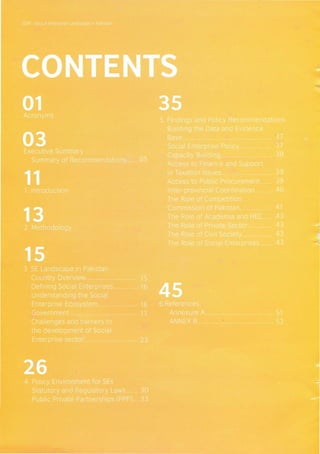
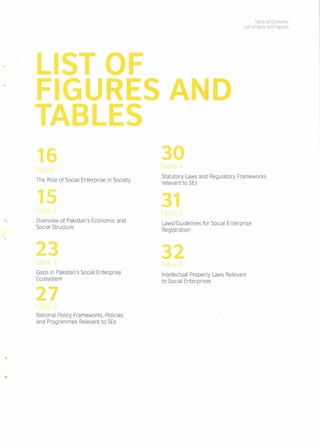
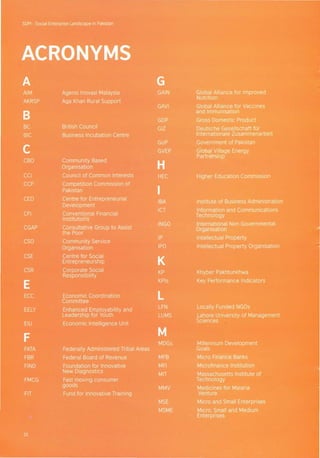
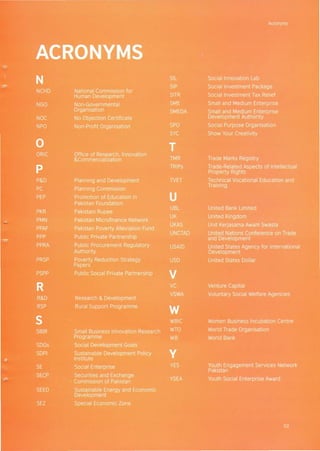
![SDPI - Social Enterprise Landscape in Pakistan
EXECUTIVE
SUMMARY
Social enterprises (SEs) in Pakistan have evolved
out of societal imperatives, based on the unmet
demands of the local communities. The country's
SE ecosystem is in its nascent stages but with
rapid expansion and growth in recent years.
This sector, among other roles, offers the potential
to fill the gap between public services which do
not currently reach the entire population and
services provided by the private sector which
are often unaffordable for vulnerable and
marginalised communities. SEs can offer viable
models of service delivery, with the potential to
assist Pakistan towards the achievement of the
sustainable development goals (SDGs).
SEs can also offer economic empowerment.
innovation and access to new markets at the
bottom of the pyramid. 1
This study attempts to provide a broad
understanding of the emerging SE sector in
Pakistan, alongside the policy and regulatory
environment. It has been informed by interviews,
focus group discussions and an extensive
literature review of international and national
research studies. It reviews the context in which
SEs have evolved in Pakistan, their ways of
addressing different economic, social and
environmental needs, the key barriers and
enablers to SE development. and explores
opportunities on how various stakeholders might
effectively engage and develop the regulatory
and policy framework for SEs in Pakistan.
There is no specific policy directed at SEs in
Pakistan. However, there are policies from a
number of government bodies that are relevant to
SEs. Policies relating to NGOs, SMEs and small
scale industries for example, all potentially have
an impact on SEs.
]
-
- .--••.--
-- -===---
Neither is there a bespoke legal form specifically
for SEs in Pakistan. Today, SEs in Pakistan take on
a variety of legal forms, which in turn influence
their character and ability to achieve impact.
A consensus around our proposed
recommendations has emerged from consultative
sessions hosted by SDPI and the British Council.
Our set of recommendations Includes
• the need to recognise and Identify the vibrant
and growing SE sector.
• effort required to put SEs on policymakers'
radar and a targeted set of policies as part of
the annual federal and provincial budgets,
trade, industrial and investment policies.
• building the research and evidence base
vis-a-vis the scale and scope of social
enterprises in Pakistan
• capacity building for social enterprises in
terms of scalability, legal and statutory
compliance, financial management. and
human resource, for example
• ensuring a fair taxation playing field for social
enterprises
• measures to ensure improved access to
finance and access to public procurement
1 The Bottom of the Pyramid (BOP) refers to the four billion world's poorest people. Most social entrepreneurs believe that
03 BOP is an unserved market.](https://image.slidesharecdn.com/socialenterprises-161101080957/85/Social-Enterprises-and-Sustainable-Development-7-320.jpg)
